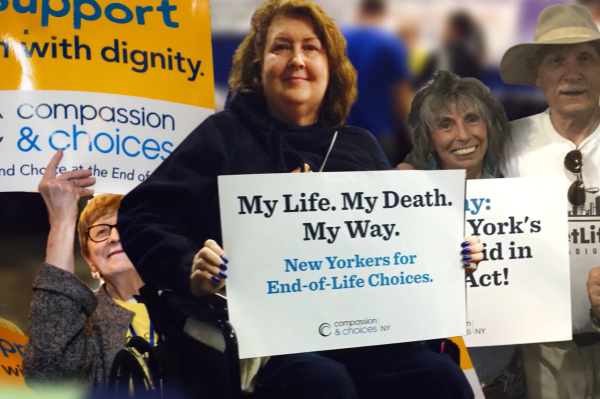Lila Rose calls on lawmakers to help make America 'a friendlier place for families'

A prominent pro-life activist is calling on lawmakers at both the state and federal levels to embrace policies that will help make America “a friendlier place for families” as many legislators allied with her movement remain hesitant to support such initiatives.
In an interview with The Christian Post, Lila Rose, founder and president of the pro-life advocacy organization Live Action, discussed the state of the pro-life movement and what laws she would like to see enacted to make life easier for women and their children now that the U.S. Supreme Court has overturned the Roe v. Wade decision that legalized abortion nationwide.
Following the court's ruling on a Mississippi law banning abortion after 15 weeks gestation, known as Dobbsv. Jackson Women’s Health Organization, many states have outlawed or severely restricted abortion, leading to a push to “help pregnant women and their families bring their pregnancy to term.”
Last week, Indiana’s Republican Gov. Eric Holcomb signed a measure into law that allocates $45 million to “support the health of pregnant women, postpartum mothers, and infants” and to help low-income families with children younger than age 4.
“Making America a friendlier place for families is a crucial pro-life public policy objective,” Rose said. Listing legislative proposals designed to achieve that goal, which her organization supports, Rose said these plans include a tax credit for children that makes it “easier to raise a child,” “financial support for pregnancy resource centers and non-abortion health centers” and “adoption tax credits.”
One state Rose lauded as an example was Georgia, which recently enacted a policy allowing parents to claim a $3,000 tax exemption for their preborn children. “We need more laws like that,” she added.
The pro-life movement “should be focused on both private and public financial support for families to help them raise their children,” she said, because “it can be very hard to raise children in our world today, not just because of our culture but because of these economic struggles that many families face, would-be parents face.”
Given that a tremendous amount of money is spent at all levels of government, Rose strongly believes that “children and families should be first in line [when] we’re doling out tax credits and other incentives and policies.”
But convincing Republicans, the party most sympathetic to the pro-life movement, to support such policies at both the state and federal level will “[take] time,” she added. “It takes time to move most ships in politics.”
The Republican Party has a “libertarian faction who sees any government spending as a ‘no,’” she said, but also expressed optimism about the pro-life movement’s “progress” in convincing GOP lawmakers to embrace legislation to advance the “well-being and the sanctity of the family.”
At the federal level, Sens. Mitt Romney, R-Utah, and Marco Rubio, R-Fla., have introduced the New Parents Act, which would enable parents with household median outcomes of $60,000 or less to take paid family leave by using a portion of their Social Security benefits. Rose praised the bill as “a no-brainer.”
In addition to disagreement between pro-life lawmakers and activists about legislation providing financial incentives to parents, there is also disagreement within the movement about the role of birth control in “making America a friendlier place for families.”
Like Rose, Mississippi state Rep. Becky Currie has advocated for the state government to take a more proactive approach in enacting such legislation. However, Currie told Mississippi Today that in her state, “we need to make sure every woman in every county has access to birth control.”
Indiana’s recent law overwhelmingly passed both chambers of the state Legislature, receiving near-unanimous approval from both Democrats and Republicans. As part of its efforts to assist families with young children, Senate Enrolled Act 2 set aside money “to support pregnancy planning, including addressing barriers to long acting reversible contraception.”
For her part, Rose rejects the idea that ensuring access to contraception will lower the number of unplanned pregnancies and lead to fewer abortions. “Birth control does not curb our abortion rates,” she asserted. “The contraceptive mindset only lends to the abortion crisis because it separates, it says that children, which is a natural consequence of sex, that children are a burden and that people should, are entitled to sex without any of the natural consequences.”
Lamenting that birth control perpetuates the “wrong understanding of sex and it’s helping create the abortion problem,” Rose said, “we have to go toward a new sexual ethic as a country that celebrates children and also sees that sex belongs in a lifelong, committed and loving relationship where children can ultimately thrive.” She also expressed concern that many contraceptives “are also abortifacients” or drugs that induce abortions.
“It’s crucial that we’re certainly not lending any support, public taxpayer support, in any way or having the government encourage [the use of] contraceptives that are abortifacients,” she proclaimed. Going forward, Rose would also like to see adoption made “more affordable” and ensure women are “educated on what adoption can entail for them.”
Rose recalled that many women she's spoken with who had abortions rejected giving their baby up for adoption because they did not know “what’s going to happen to that child.” She emphasized the need to inform women that “you can have open adoption” and highlighted the option for expectant mothers to “hand select” families to place their children with.
She also supports putting “more societal pressure on men, not just to pay child support, but to stand up and be fathers and step into the role of protector and provider.”
Ryan Foley is a reporter for The Christian Post. He can be reached at: ryan.foley@christianpost.com





















